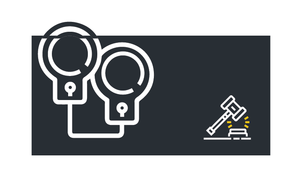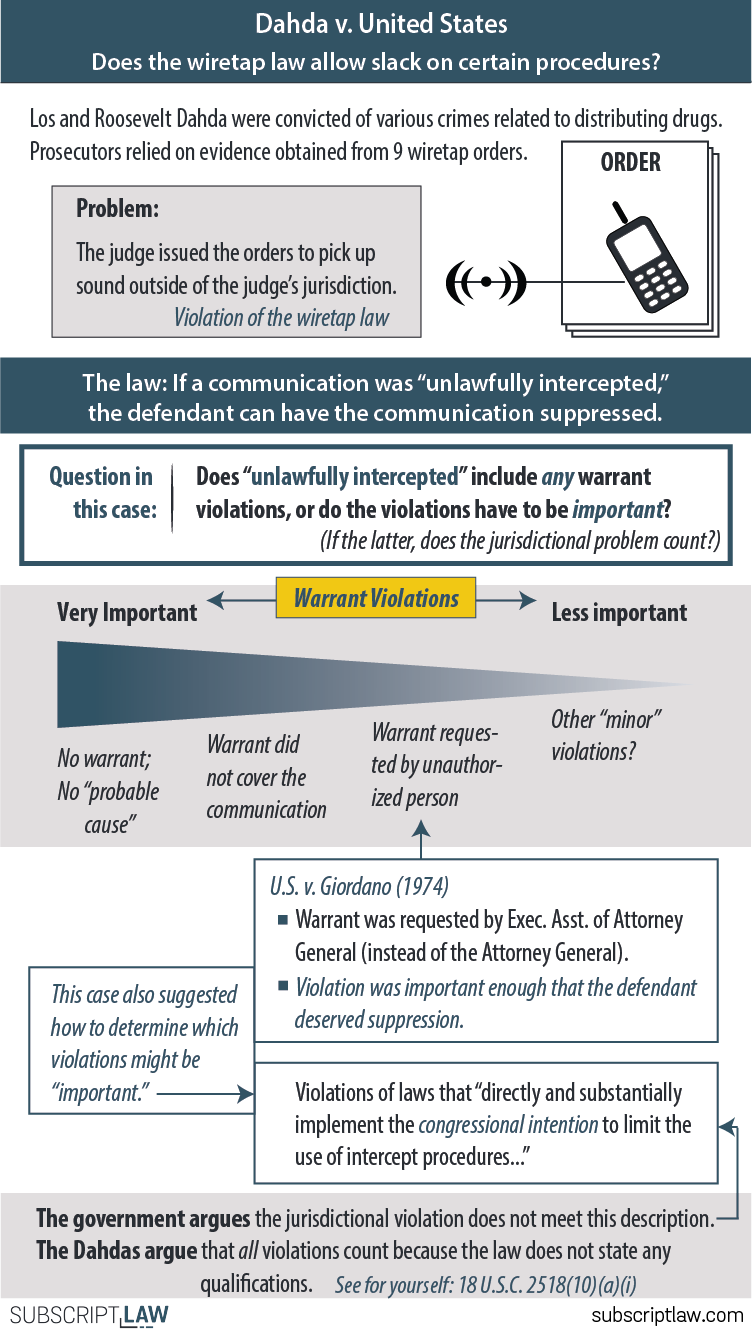
This case has been decided. See how it turned out!
When a judge reaches outside of his authority to help get some convictions…
Los Dahda and his brother were convicted of several crimes relating to drug distribution. Their convictions were based in part on conversations that the government intercepted through wiretap orders (warrants).
But the judge didn’t have jurisdiction where the communications were intercepted. The judge violated the wiretap law by issuing the orders.

Can Dahda get the evidence suppressed?
If you read the law plainly, it says the evidence can be suppressed if “the communication was unlawfully intercepted.” Sounds clear. The jurisdictional problem violated the law, so the communications should be suppressed. That’s Dahda’s argument.
But the government says, wait – that “unlawfully intercepted” text needs to be read in context. That was prong (a), of (a) through (c). Each of the prongs describes a situation for which the evidence can be suppressed. The other prongs, (b) and (c), also describe unlawful situations. The use of “unlawful” in prong (a) must be more specific than that. Otherwise why would (b) and (c) be listed at all?
U.S. v. Giordano
The Supreme Court seemed to appreciate the government’s argument in another case in 1974: U.S. v. Giordano. The argument basically says that prong (a) is meant to be used only for important violations of law – not just any minor violation.
However the Giordano case left some questions. When the argument was used in Giordano, the Court said: Although the argument has some merit, the violation in this case (Giordano) would have passed the test anyway.
The Giordano court went on to state what level of “importance” a violation of law would need to satisfy prong (a): a violation that “directly and substantially implement[s] the congressional intention to limit the use of intercept procedures.”
Now in this case, although Dahda is still arguing the language of the law is clear, the parties must acknowledge that quote. Did the Supreme Court mean to set a higher bar for prong (a)?


